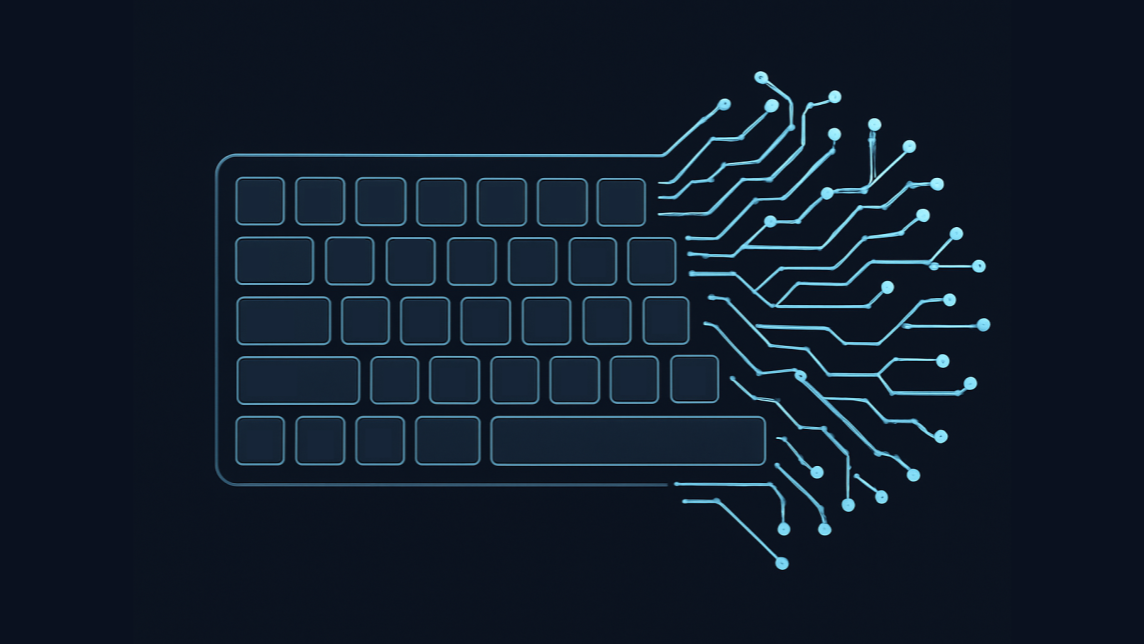The Hybrid Future of Software

Published: September 23, 2025
Software development is evolving. It's not because of a new programming language or framework, but rather because of a change in who or what is actually writing the code.
Autocomplete has been surpassed by tools like GitHub Copilot, Cursor, and RA.Aid. They belong to a new generation of coding agents that can run commands, create whole functions, reason through issues, and manage large codebases.
This is not a work of science fiction. Adoption is occurring quickly, and it is already here. Although software development has always been dynamic, with new frameworks and approaches appearing frequently, agentic coding is unique. As such, teams are already working differently as a result.
The Reality and the Hype
There is hype around every technological advancement. The same is true for agentic coding. It seems revolutionary to think of an AI capable of independently designing, writing, and testing software.
However, things are messier in real life. Despite their strengths, these systems are not yet entirely reliable when left unsupervised. Critical errors have already been observed in production settings where agents were given excessive autonomy. These incidents will only rise as adoption continues to pick up speed.
At Correll Technologies, we think this is a turning point. It is not about dismissing the technology, but about realizing its limitations and adapting workflows to leverage the profound capabilities of coding agents.
Why Human Guidance Still Matters
AI can write code, but it doesn’t own vision. Successful software isn’t just functions and classes stitched together. It’s the realization of a strategy, a design philosophy, and a business need.
Here are some constraints we’ve seen first-hand:
- Vision and planning belong to people: Infrastructure choices, architecture, and long-term direction are decisions rooted in judgment, trade-offs, and accountability.
- AI-written code needs human review: Without alignment to business goals and robust testing, the cost of errors quickly outweighs the time saved.
- Architecture is destiny: A weak foundation, when paired with AI’s speed, doesn’t solve problems. Rather, it compounds them, accelerating technical debt.
- Expertise is irreplaceable: These tools don’t erase complexity; they amplify it. Without developers who understand design principles and computer science fundamentals, it’s difficult to guide AI toward quality solutions.
Software Never Stands Alone
Every line of code has to run somewhere. Whether it’s on a developer’s laptop, in the cloud, or on an embedded system, software only works because there’s hardware underneath it.
While agentic coding tools are capable of writing functions and managing context, they are not able to determine where code should run, how much power a data center can consume, or whether the budget is sensible for scaling.
That is what people are for. We establish the goal, specify the limitations, and provide agents with the guidance that keeps software rooted in reality. Code does not exist in a vacuum; it operates on machines in particular locations, using resources and energy that have actual expenses.
Building great systems isn’t just about writing code. It’s about understanding how that code lives in the real world, and making sure the environment it runs in is reliable, secure, and ready to grow.
Where Agentic Coding Excels Today
Even with the current limitations, agentic coding is already reshaping workflows in ways that matter.
- Research and documentation: automating the time-consuming and tiresome tasks so that developers can concentrate on creating.
- Implementation support: Enabling faster iteration by swiftly translating high-level instructions into functional code.
- Context management: Tracking large projects that people can struggle to hold in working memory.
AI serves as a force multiplier in these fields, shifting the workload rather than taking the place of people. Developers are able to concentrate on strategy, creativity, and problem solving.
The Future Is Human + Machine
At Correll Technologies, we don’t see agentic coding as a binary choice between automation and craftsmanship. We see it as a hybrid future, where the greatest outcomes will come from combining AI’s efficiency with human creativity, judgment, and ownership.
The winners of this new era won’t be the ones who blindly hand the wheel to AI. They’ll be the ones who know when to accelerate with agentic tools, and when to steer with human insight.
Agentic coding is the future of software development. Like every future worth building, it demands leaders who can see the whole picture.
#AgenticCoding #AI #SoftwareDevelopment #CorrellTechnologies #Cursor #RAAid